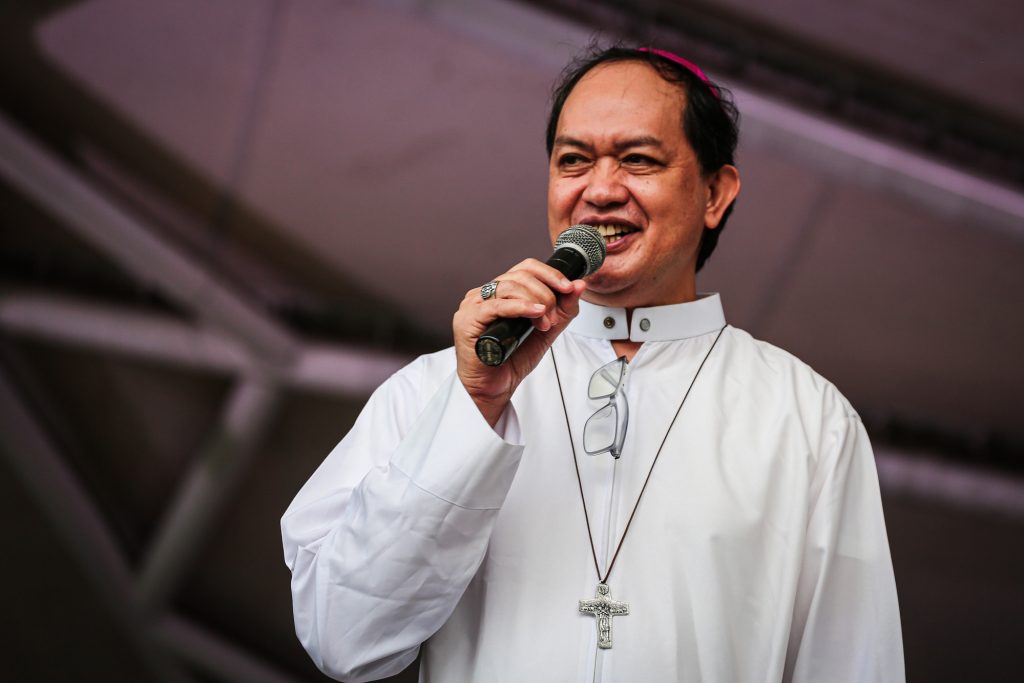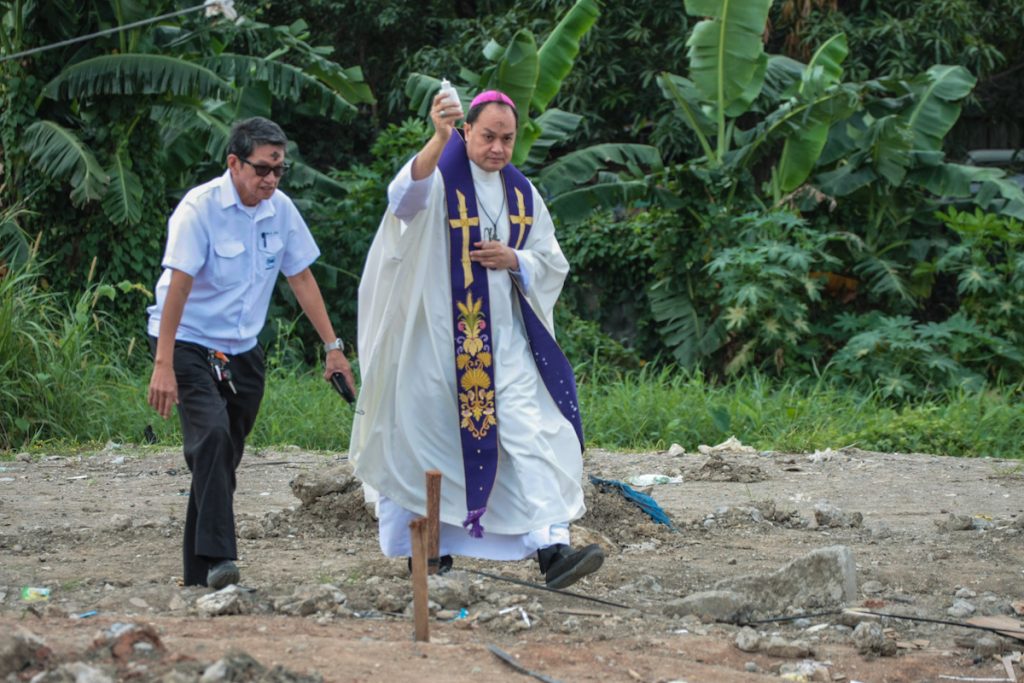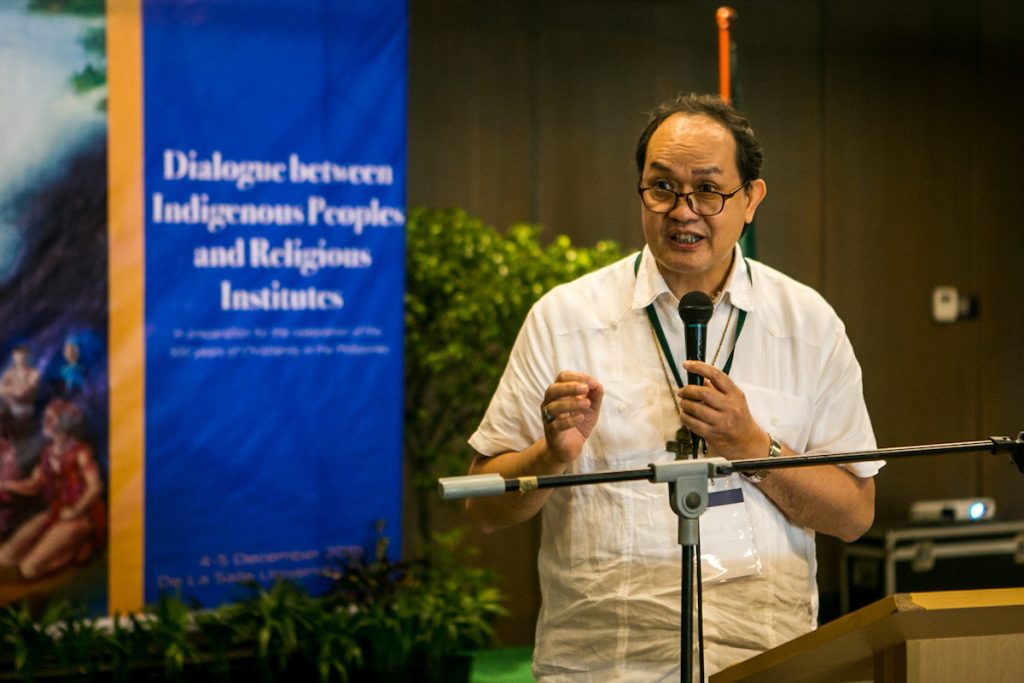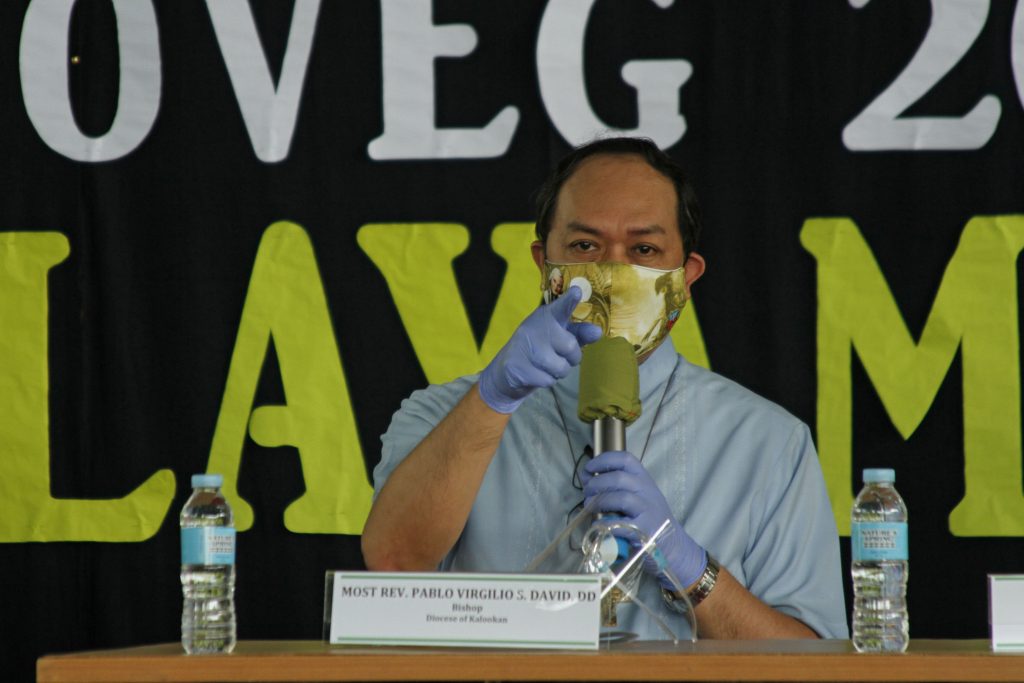
As a journalist and writer, I have always regarded the Catholic Bishops Conference of the Philippines (CBCP) as an organization too powerful for its own sake, yet too weak to make a difference in the world at large.
It has maintained its reticence on numerous issues throughout many years alongside several political dispensations, so much so that it led many to doubt the religious leadership’s relevance in a society beleaguered by political cruelty.
Until I came across a news item recently, saying that Bishop Pablo Virgilio David has been elected as CBCP president.
The 62-year-old bishop of Kalookan, and former vice-president of the CBCP, has quite a reputation as a critic of President Rodrigo Duterte’s drug war. In fact, the bishop’s disapproval earned the fury of Duterte who, in retaliation, accused the cleric of “stealing donations.”
Bishop David responded by implicitly referring to Duterte as “sick” with a condition that denies him any knowledge of what he was saying. “You see, people who are sick sometimes do not know what they are talking about, so we should just bear with them,” the bishop said in an interview with a national newspaper. “My parents never taught me to steal.”
This wasn’t the first incident when the bishop and the president engaged in an exchange of words. When Duterte referred to the “saints” of the church as “drunkards,” accusing the prelate himself as someone who might be “into drugs,” Bishop David again insinuated that the president was “sick” and that the faithful should consider him in their prayers.
The country’s Catholic leadership has also condemned the killings of three priests in 2018, saying that it was an indictment against the administration of Duterte.
Bishop David has always equated Duterte’s drug war as a war against the poor. In a statement released to the media in 2019, Bishop David explained that “There is no war against illegal drugs, because the supply is not being stopped. If they are really after illegal drugs, they would go after the big people, the manufacturers, the smugglers, the suppliers. But instead, they go after the victims of these people. So, I have come to the conclusion that this war on illegal drugs is illegal, immoral and anti-poor.”

Being a whiz in the use of the internet assisted the Bishop to spread his words as far and wide as possible. “I have discovered social media,” he once said. “I don’t even have to talk to the media, they can follow the sound bites online. So, when he said that addicts are not human, I posted that I beg to disagree. I said no civilized society in this world would agree with him that addicts should be treated as nonhumans. And when he calls them nonhumans, does that mean we can do nothing about them except exterminate them? That’s immoral. His statement had to be questioned. The problem is people don’t question it, and when he repeats it over and over, it becomes gospel truth.”
On the brighter side, Bishop David said that the drug war has, in sundry ways, brought the clergy closer to the poor.
“Our mission stations are like new wine bursting the old wineskins,” he said. “Pope Francis keeps talking about going to the periphery, and this is the perfect opportunity. A mission station is a church without a church building, without a chapel. I send missionaries to live with them and they do community organizing and set up basic ecclesial communities. The sense of community is going down here in the city. There is no common ethnicity nor common language nor common origin. All of these people have migrated from the different provinces, and so they are strangers to each other. Who will build them into a community? They are very transient, they come and go, looking for where they can find jobs. Our role is to build community among them.”
In a recent column he wrote for LiCAS News Philippines, titled “Faith in Humanity,” he even criticized the mistaken function of the cleric as “savior,” insisting that there is a stark difference between wanting to be Christians and wanting to be like Christ.

“It is precisely for this reason that Pope Francis keeps reminding us to get rid of the clericalistic attitudes that continue to plague the Church like a pandemic. If the laity continue to think of the clergy as their saviors, they will always be scandalized whenever they realize that they too have feet of clay. They will never grow into fellow participants in the saving work of the Messiah who is supposed to be at work in all the members of his body, the Church. Remember what I’ve said to you many times before: we are called not just to be Christians but to be Christ. Yes, in the very crassness of our humanity, which is a work in progress.”
While I sometimes wonder as a journalist to what lengths the bishop is willing to carry his criticism of the drug war without incurring the consequences under this bloodstained regime, I find the election of Bishop David as president of the CBCP a breath of fresh air.
My own readings of the Gospels and the Scriptures had led me to envision Christ and the first century church as a voice to be reckoned with, preaching not only God’s love through Christ but God’s disapproval of corruption, pride and murder, of which Christ and the apostles were only too eager to condemn openly even under pain of death.
With Christ himself being a victim of human injustice because of His criticism of the religious and political order of His day, I do wonder: would Bishop David’s current position as CBCP president usher in the much-awaited changes in the organization and how they deal with the faithful?
Would the bishop’s role as president of the CBCP be bold enough to confront other grave problems plaguing the Catholic church, the activities of pedophile priests being one of them?
In short, will the CBCP, under Bishop David, be closer to being Christian, or be more Christ-like? I guess, for now, that remains to be seen.

It is, however, crucial to our social and political health, to say little of spiritual, to have a courageous voice within the halls of the Catholic hierarchy. While I wouldn’t go to great lengths praising the late Archbishop Jaime Cardinal Sin for his stint as Archbishop of Manila back in the day, his stance against the Marcos dictatorship has proven itself worthy of the pages of history.
There are Christians and there are those who are Christ-like, and the difference is staggering when set side by side with the issues facing humanity today. Religious leaders from the whole breath and width of the Christian divide have left their congregations wondering of the relevance of the Gospel and Jesus Christ in this day and age.
The Catholic Church, despite the power it wields over 1.329 billion of its faithful all over the world, seems to be taking a backseat when confronted with more pressing issues. As such, churches in Canada today burn on account of the hundreds of unmarked graves recently found at Catholic-run indigenous residential schools, many of them belonging to children.
Silence has never worked to protect the most invincible of institutions. Oppression only drives people into open conflict with the past and the present. Having said that, this column comes with the hope that Bishop David would be the country’s version of the voice in the wilderness, the preacher of hope, boldness, and triumph.
Because at this point in the country’s life, we need someone, in the vast circle of the faithful, possessed not by mute indifference but The Word.
And words need to be spoken.
Joel Pablo Salud is an editor, journalist and the author of several books of fiction and political nonfiction. He is currently the chair of the Philippine Center of International PEN’s Writers in Prison Committee. The views and opinions expressed in this article are those of the author and do not necessarily reflect the official editorial position of LiCAS.news.
Source: Licas Philippines
0 Comments